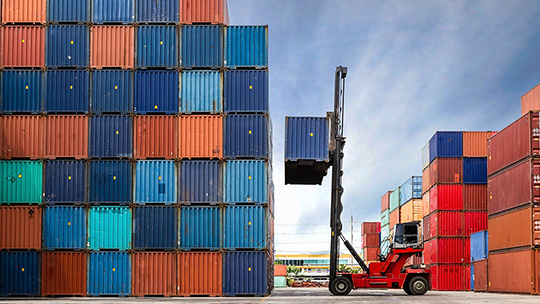Vietnam Increases Investor’s Equity Ratio for PPP Projects
By: Dezan Shira & Associates
Editor: Koushan Das
The Vietnamese government has issued Decree 63/2018 (Decree 63) to replace Decree 15/2015 specifying the areas, investment conditions, and procedures for public-private partnership (PPP) projects in Vietnam. The major change is in the investor equity ratio for PPP projects, which has been increased to 20 percent. PPP is a form of investment that includes a project contract between a government agency and an investor for projects in construction, renovation, operation, business, management of infrastructure works, and provision of public services. Decree 63 will be in effect from June 19th, 2018.
![]() RELATED: Pre-Investment Advisory Services from Dezan Shira & Associates
RELATED: Pre-Investment Advisory Services from Dezan Shira & Associates
Increase in the equity ratio
The investor equity ratio for PPP projects with a total investment of up to VND 1,500 billion (US$66 million), must not be lower than 20 percent of the total investment capital. Earlier the limit was 15 percent.
For PPP projects with a total investment of more than VND 1,500 billion (US$66 million), the investor equity ratio is split into two:
- for capital up to VND 1,500 billion (US$66 million), the ratio must be at least 20 percent; and
- for the remaining capital which is more than VND 1,500 billion (US$66 million), the ratio must be at least 10 percent of the remaining capital.
The investor equity ratio does not include the State capital, which is part of the PPP project. The State’s participation includes the capital contribution, investor payments, transfer of land and office space, transfer of business rights in case of BT projects, infrastructure, capital for construction of supporting work, compensation, site clearance, and resettlement.
For BT projects, additional requirements must be met as per Vietnamese laws on investment, construction, housing, and real estate business.
![]() RELATED: Port Infrastructure in Vietnam
RELATED: Port Infrastructure in Vietnam
Approval Authority
For projects of national significance, the National Assembly is the sole approval authority, while the Prime Minister can authorize investments in certain types of Group A projects, which receive capital from the State budget, including Build-Transfer (BT) projects.
In addition, the ministerial-level agencies can authorize projects that do not fall under the aforementioned cases.
PPP Projects
Vietnamese government encourages PPP investments in projects such as:
- Transportation;
- Power plants, and power transmission lines;
- Public lighting, water supply, drainage, wastewater treatment and waste collection;
- Parks; houses, yards for cars, vehicles, machinery and equipment, cemetery;
- Offices of state agencies, public housing, social housing, and resettlement housing;
- Health, education, training, vocational training, sport; travel, science and technology, hydro-meteorology, IT applications;
- Commercial infrastructure, urban areas, economic zones, industrial parks, industrial clusters, information technology parks, high-tech technical infrastructure, incubator facilities, technical facilities, and working areas to support small and medium enterprises;
- Agriculture and Rural Development, services associated with production, processing, and consumption of agricultural products;
- Other areas as decided by the Prime Minister.
![]() RELATED: Market Entry Modes for Vietnam
RELATED: Market Entry Modes for Vietnam
Transferring projects
Earlier, an investor could transfer a project during project implementation or completion. Under the new decree, an investor can transfer partial or entire rights and duties of a project to a lender or another investor only when the construction is complete or the project is operational.
Projects being transferred should not change in scale, objectives, or technical standards and should continue to satisfy the investment conditions.
Incentives
Investors in PPP projects will receive incentives such as preferential corporate income tax, and reduced or exempted land use fees during project implementation. In addition, the goods imported for the project will get preferential treatment with respect to import/export taxes. Contractors will also receive benefits in the form of tax incentives.
Private participation in infrastructure
According to the World Bank’s Private Participation in Infrastructure data, Vietnam had 96 projects worth US$ 14.7 billion with private participation as of 2017. Majority of the projects were in the electricity sector, which accounted for 76 projects worth US$ 10.74 billion.
![]() RELATED: Vietnam’s Real Estate Industry: Poised for a Major Structural Funding Shift
RELATED: Vietnam’s Real Estate Industry: Poised for a Major Structural Funding Shift
Investment demand
According to the 2017 G20 Global Infrastructure Outlook report, if Vietnam continues to maintain its current investment trend, it will be able to meet 83 percent of its infrastructure needs by 2040. Vietnam will require a total of US$605 billion for infrastructure projects across all sectors, while according to current trends, investments will reach only US$503 billion leading to an investment gap of US$102 billion.
Most of the demand is in the energy sector followed by roads, telecommunications, and water-based projects. Roads and water-based infrastructure projects will face the highest investment gaps by 2040, at US$55 billion and US$23 billion respectively.
In addition to the infrastructure demand, the easing of business and investment conditions in the last two years through numerous investor-friendly reforms provides huge opportunities for investors and enterprises.
|
Vietnam Briefing is published by Asia Briefing, a subsidiary of Dezan Shira & Associates. We produce material for foreign investors throughout Eurasia, including ASEAN, China, India, Indonesia, Russia & the Silk Road. For editorial matters please contact us here and for a complimentary subscription to our products, please click here. Dezan Shira & Associates provide business intelligence, due diligence, legal, tax and advisory services throughout the Vietnam and the Asian region. We maintain offices in Hanoi and Ho Chi Minh City, as well as throughout China, South-East Asia, India, and Russia. For assistance with investments into Vietnam please contact us at vietnam@dezshira.com or visit us at www.dezshira.com
|
![]()
 Dezan Shira & Associates Brochure
Dezan Shira & Associates Brochure
Dezan Shira & Associates is a pan-Asia, multi-disciplinary professional services firm, providing legal, tax and operational advisory to international corporate investors. Operational throughout China, ASEAN and India, our mission is to guide foreign companies through Asia’s complex regulatory environment and assist them with all aspects of establishing, maintaining and growing their business operations in the region. This brochure provides an overview of the services and expertise Dezan Shira & Associates can provide.
 An Introduction to Doing Business in Vietnam 2017
An Introduction to Doing Business in Vietnam 2017
An Introduction to Doing Business in Vietnam 2017 will provide readers with an overview of the fundamentals of investing and conducting business in Vietnam. Compiled by Dezan Shira & Associates, a specialist foreign direct investment practice, this guide explains the basics of company establishment, annual compliance, taxation, human resources, payroll, and social insurance in this dynamic country.
Managing Contracts and Severance in Vietnam
In this issue of Vietnam Briefing, we discuss the prevailing state of labor pools in Vietnam and outline key considerations for those seeking to staff and retain workers in the country. We highlight the increasing demand for skilled labor, provide in depth coverage of existing contract options, and showcase severance liabilities that may arise if workers or employers choose to terminate their contracts.
- Previous Article Vietnam: Exporters Need to Self-Certify the Origin of Goods Exported to the EU
- Next Article Thriving Consumer Lending Market in Vietnam


































